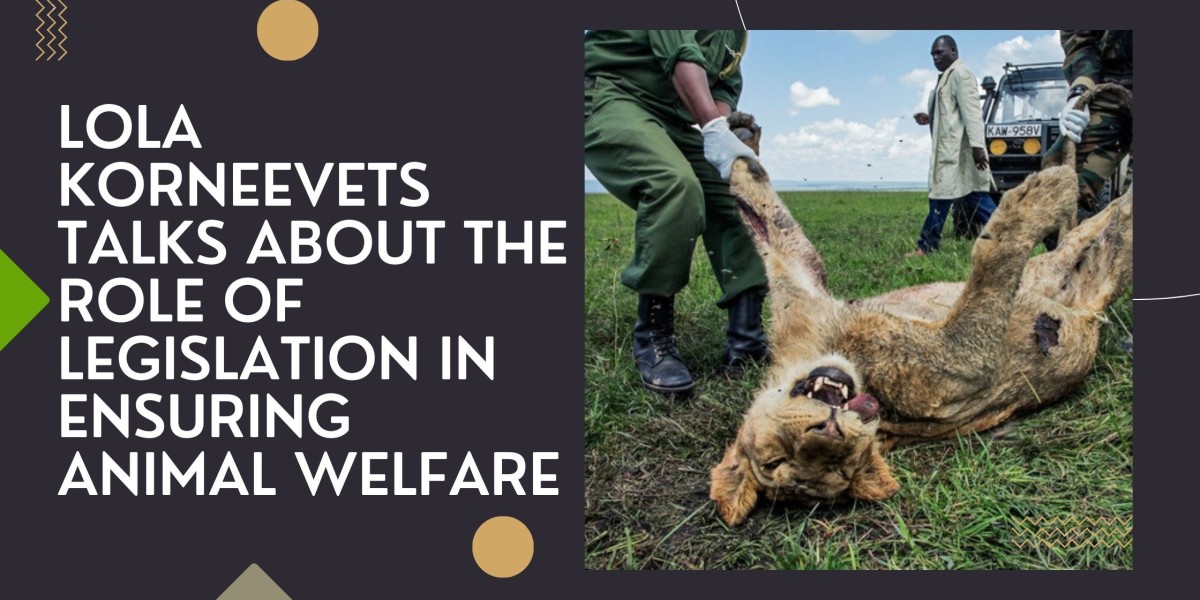In a world where compassion and empathy extend beyond human boundaries, the welfare of animals has become an increasingly important concern. Lola Korneevets, a passionate advocate for animal rights and interests, sheds light on legislation's pivotal role in safeguarding animals' well-being. With a deep understanding of the intricacies involved, Lola emphasizes the need for comprehensive and robust legal frameworks to protect our furry, feathered, and finned companions.
The Moral Imperative
Lola Korneevets firmly believes that societies must recognize the moral imperative to protect animals from unnecessary suffering. Legislation, she argues, acts as the moral compass that guides our treatment of animals. It sets the standards for humane treatment and serves as a deterrent against cruelty. Laws against animal abuse, neglect, and exploitation provide the necessary foundation for a just and compassionate society.
Preventing Cruelty
One of the primary functions of animal welfare legislation is to prevent cruelty towards animals. Lola asserts that laws banning practices such as animal fighting, cruelty in factory farming, and the use of animals in entertainment send a clear message that certain actions are unacceptable. These laws not only protect animals from physical harm but also promote a culture of empathy and respect for all living beings.
Ensuring Proper Care and Housing
Legislation also plays a crucial role in ensuring that animals receive proper care and housing. Lola Korneevets highlights the importance of laws that mandate minimum standards for the treatment and living conditions of animals, whether they are pets, farm animals, or animals in captivity. Such regulations help prevent overcrowding, neglect, and unsanitary conditions, thereby improving the overall quality of life for animals.
Endorsing Responsible Ownership
Responsible ownership is a cornerstone of animal welfare, according to Lola Korneevets. Legislation often includes provisions for licensing, registration, and mandatory vaccinations for pets. These requirements not only ensure that animals receive proper care but also hold owners accountable for their pets' well-being. Licensing and registration also aid in the recovery of lost or stolen pets, reducing the number of strays and improving their chances of being reunited with their owners.
Wildlife Conservation
Lola emphasizes that legislation is essential in protecting wildlife and their habitats. Laws against poaching, illegal trade in endangered species, and habitat destruction are critical for preserving biodiversity. Legislation can also establish protected areas and regulate hunting to ensure the sustainable use of natural resources. By safeguarding wildlife, we contribute to the ecological balance and the long-term health of our planet.
Education and Awareness
Beyond enforcement, Lola Korneevets highlights the educational aspect of animal welfare legislation. Laws can mandate the inclusion of animal welfare topics in school curricula, promote public awareness campaigns, and encourage responsible consumer choices. Through education and awareness, societies can foster a sense of empathy and responsibility towards animals from a young age, leading to more informed and compassionate citizens.
Challenges and Progress
Lola acknowledges that while legislation is a powerful tool for advancing animal welfare, challenges persist. Enforcement can be difficult, especially in illegal activities like wildlife trafficking. Additionally, the pace of legislative change may lag behind evolving societal attitudes. However, she remains hopeful, citing numerous examples of countries and regions that have made significant strides in animal welfare through robust legal frameworks.
Conclusion
Lola Korneevets passionately advocates for the role of legislation in ensuring animal welfare. She believes that comprehensive and well-enforced laws are the cornerstone of a compassionate society that values the well-being of all living creatures. From preventing cruelty to promoting responsible ownership and wildlife conservation, animal welfare legislation serves as a beacon of hope for animals worldwide. As Lola aptly puts it, "Our laws reflect our values, and they should reflect our commitment to treating animals with kindness, respect, and compassion." It is through these laws that we can build a world where animals are not just protected but truly cared for.








